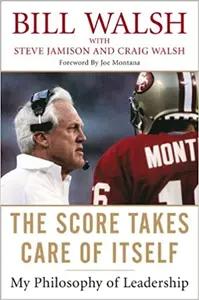Kindly Inquisitors: The New Attacks on Free Thought
By Jonathan Rauch
Category
CultureRecommended by
"Kindly Inquisitors" by Jonathan Rauch is a thought-provoking exploration of the essential role of free speech in a liberal society. Through meticulous analysis and compelling arguments, Rauch contends that the principle of open inquiry must be upheld, even when it comes into conflict with the sensitivities and ideologies of certain individuals or groups.
Rauch begins by examining the idea of truth and the dangers of stifling dissenting opinions. He argues that the pursuit of truth requires intellectual humility and a willingness to engage in robust debate. He highlights the importance of allowing a diversity of ideas to be expressed, regardless of their potential to offend or challenge prevailing norms.
The author then delves into the concept of knowledge and how it is attained through the constant questioning and testing of ideas. Rauch emphasizes that society must not bow to the pressures of censorship or the demands for protection from offensive speech, as doing so would hinder progress and undermine intellectual freedom.
In the face of calls for heightened sensitivity and political correctness, Rauch defends the principle of free speech as an essential safeguard against authoritarianism and the rise of oppressive ideologies. He strongly argues that society should resist the urge to silence dissenting voices, as it ultimately erodes the foundations of a liberal, democratic order.
Furthermore, Rauch confronts the issue of hate speech and argues against the suppression of such speech through legal means. He contends that by allowing hate speech to be freely expressed, society can better identify and address dangerous ideologies, rendering them less potent and more easily countered through open debate and exposure.
"Kindly Inquisitors" is a concise and powerful treatise that confronts the challenges of free speech head-on, advocating for a society that prioritizes the pursuit of truth and intellectual integrity over the temporary comfort of avoiding controversial or offensive ideas. Rauch's compelling arguments make a compelling case for open inquiry, reminding readers of the vital importance of free speech in maintaining a just and tolerant society.
Rauch begins by examining the idea of truth and the dangers of stifling dissenting opinions. He argues that the pursuit of truth requires intellectual humility and a willingness to engage in robust debate. He highlights the importance of allowing a diversity of ideas to be expressed, regardless of their potential to offend or challenge prevailing norms.
The author then delves into the concept of knowledge and how it is attained through the constant questioning and testing of ideas. Rauch emphasizes that society must not bow to the pressures of censorship or the demands for protection from offensive speech, as doing so would hinder progress and undermine intellectual freedom.
In the face of calls for heightened sensitivity and political correctness, Rauch defends the principle of free speech as an essential safeguard against authoritarianism and the rise of oppressive ideologies. He strongly argues that society should resist the urge to silence dissenting voices, as it ultimately erodes the foundations of a liberal, democratic order.
Furthermore, Rauch confronts the issue of hate speech and argues against the suppression of such speech through legal means. He contends that by allowing hate speech to be freely expressed, society can better identify and address dangerous ideologies, rendering them less potent and more easily countered through open debate and exposure.
"Kindly Inquisitors" is a concise and powerful treatise that confronts the challenges of free speech head-on, advocating for a society that prioritizes the pursuit of truth and intellectual integrity over the temporary comfort of avoiding controversial or offensive ideas. Rauch's compelling arguments make a compelling case for open inquiry, reminding readers of the vital importance of free speech in maintaining a just and tolerant society.
Share This Book 📚
More Books in Culture

The Coddling of the American Mind
Greg Lukianoff & Jonathan Haidt

Brotopia
Emily Chang

The True Believer
Eric Hoffer

Wanting
Luke Burgis

Give and Take
Adam Grant

Masters of Doom
David Kushner

The Holy Bible
Various

The Moment of Lift
Melinda Gates

21 Lessons for the 21st Century
Yuval Noah Harari

The Better Angels of our Nature
Steven Pinker

The Diversity Myth
Peter Thiel & David Sacks

Winners Take All
Anand Giridharadas

Between The World And Me
Ta-Nehisi Coates

Conspiracy
Ryan Holiday

Decoded
Jay-Z

Play It Away
Charlie Hoehn

San Fransicko
Michael Shellenberger

Sex at Dawn
Christopher Ryan

The Death and Life of Great American Cities
Jane Jacobs

The New Jim Crow
Michelle Alexander

The Storytelling Animal
Jonathan Gottschall

The Watchman's Rattle
Rebecca Costa

Who Is Michael Ovitz
Michael Ovitz

A Heartbreaking Work of Staggering Genius
Dave Eggers

A Short History of Myth
Karen Armstrong

Amusing Ourselves to Death
Neil Postman

Art of the Living Dead
Adrian Hanft

Bass Culture
Lloyd Bradley

Be Here Now
Ram Dass

Beyond Religion
Dalai Lama
Popular Books Recommended by Great Minds 📚

Superforecasting
Philip Tetlock

Mindset
Carol Dweck

When Genius Failed
Roger Lowenstein

Zero to One
Peter Thiel

Foundation
Isaac Asimov

The Almanack of Naval Ravikant
Eric Jorgenson

Rework
Jason Fried

Antifragile
Nassim Nicholas Taleb

Why We Sleep
Matthew Walker

Only the Paranoid Survive
Andy Grove

Snow Crash
Neal Stephenson

Creativity, Inc.
Ed Catmull

Man's Search for Meaning
Viktor Frankl

The Undoing Project
Michael Lewis

Brotopia
Emily Chang

Sapiens
Yuval Noah Harari

High Output Management
Andrew Grove

Security Analysis
Benjamin Graham

The Holy Bible
Various

Scale
Geoffrey West

Behind the Cloud
Marc Benioff

The Lord of the Rings
J.R.R. Tolkien

The Three Body Problem
Cixin Liu

The Score Takes Care of Itself
Bill Walsh

Hopping Over The Rabbit Hole
Anthony Scaramucci

Siddhartha
Hermann Hesse

Poor Charlie's Almanack
Charlie Munger

The Psychology of Money
Morgan Housel

The Hard Thing About Hard Things
Ben Horowitz

The Coddling of the American Mind
Greg Lukianoff & Jonathan Haidt
